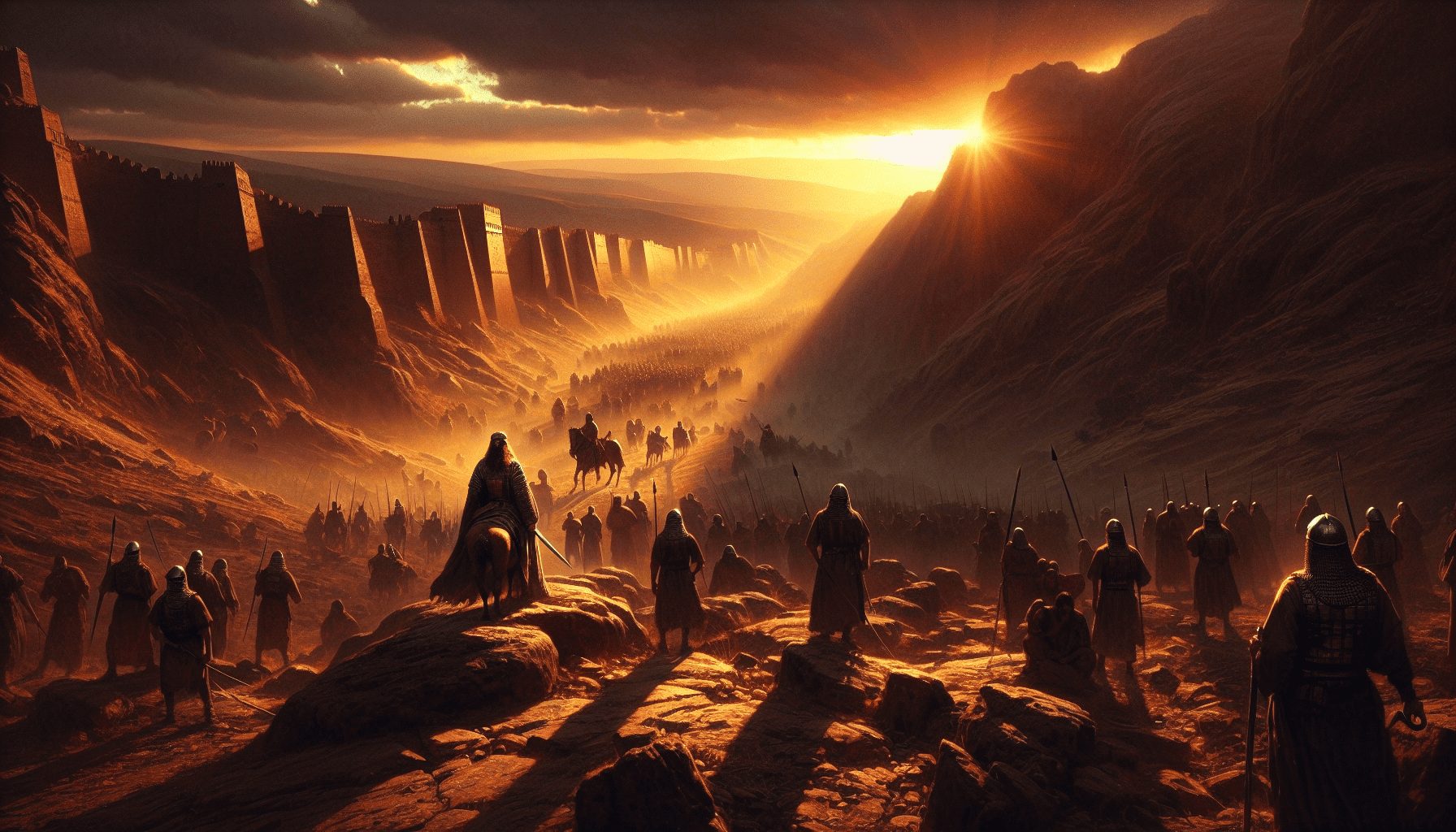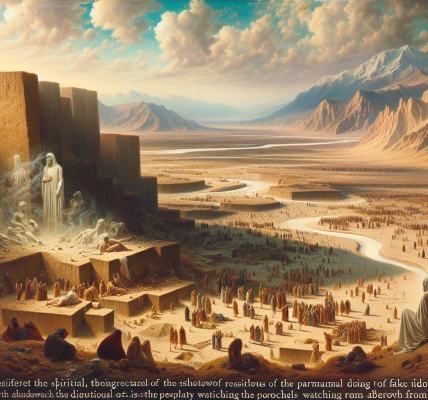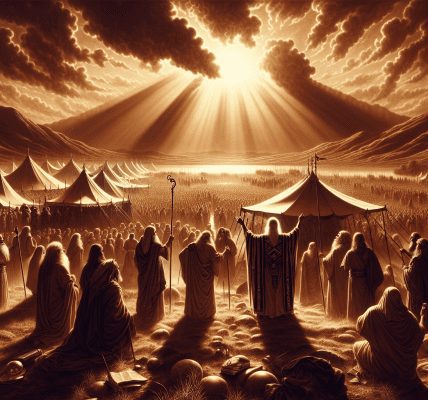**The Fall of Saul: A Tale of Tragedy and Divine Judgment**
The sun hung low in the sky, casting long shadows over the rugged terrain of Mount Gilboa. The air was thick with tension, the kind that precedes a battle where destinies are decided and kingdoms hang in the balance. The Philistines, fierce and relentless, had gathered their forces, their armor glinting in the fading light. Across from them stood the army of Israel, weary but resolute, their hearts heavy with the knowledge that their king, Saul, was no longer the man he once was. The Spirit of the Lord had long departed from him, and his reign, once marked by promise, had become a shadow of its former glory.
Saul stood at the forefront of his troops, his once-proud frame now weighed down by years of disobedience and despair. His eyes scanned the horizon, searching for a sign, any sign, that the Lord might yet deliver him. But no answer came. The heavens were silent, and the weight of his choices pressed upon him like a millstone. He had consulted a medium at Endor, seeking guidance from the dead prophet Samuel, but the encounter had only confirmed his worst fears: the Lord had turned His face away, and the kingdom would soon be torn from his hands.
The battle began with a deafening roar, the clash of swords and shields echoing across the valley. The Philistines advanced with brutal efficiency, their ranks unyielding. The Israelites fought valiantly, but their efforts were in vain. One by one, Saul’s sons fell, their lives extinguished on the blood-soaked ground. Jonathan, the beloved friend of David, the man after God’s own heart, was among them. His death was a blow not only to Saul but to all who knew him, for he was a man of courage and integrity, a stark contrast to his father’s faltering faith.
As the battle raged on, Saul found himself surrounded. Arrows whizzed past him, and the cries of the dying filled his ears. Desperation gripped his heart, and he turned to his armor-bearer, his voice trembling. “Draw your sword and run me through,” he pleaded, “lest these uncircumcised Philistines come and make sport of me.” But the armor-bearer, loyal to the end, could not bring himself to strike down the Lord’s anointed. With a heavy heart, Saul took matters into his own hands. He fell upon his sword, ending his life in a final act of despair.
The news of Saul’s death spread quickly, carried by the winds of defeat. The Philistines, emboldened by their victory, stripped the fallen king of his armor and displayed his body as a trophy of their triumph. They hung his head in the temple of their god, Dagon, and fastened his body to the wall of Beth-shan, a grim reminder of their dominance over Israel. The once-mighty king, chosen by God to lead His people, now lay humiliated and broken, a testament to the consequences of disobedience.
But the story does not end there. In the quiet town of Jabesh-gilead, a group of valiant men heard of the desecration of Saul’s body. Their hearts burned with righteous indignation, for they remembered how Saul had once delivered them from the Ammonites. Under the cover of night, they journeyed to Beth-shan, their steps swift and silent. They retrieved the bodies of Saul and his sons, carrying them back to Jabesh with reverence and care. There, they burned the bodies and buried the bones beneath a tamarisk tree, fasting for seven days in mourning.
The fall of Saul was a somber chapter in the history of Israel, a stark reminder of the cost of turning away from the Lord. His death was not merely the end of a king but the culmination of a life marked by fear, pride, and rebellion. Yet even in this tragedy, the hand of God was evident. The Lord had already chosen a new king, a man after His own heart, who would shepherd His people with faithfulness and integrity. The story of Saul serves as a warning and a lesson, a call to obedience and humility before the Almighty, for the Lord is sovereign, and His purposes will always prevail.




